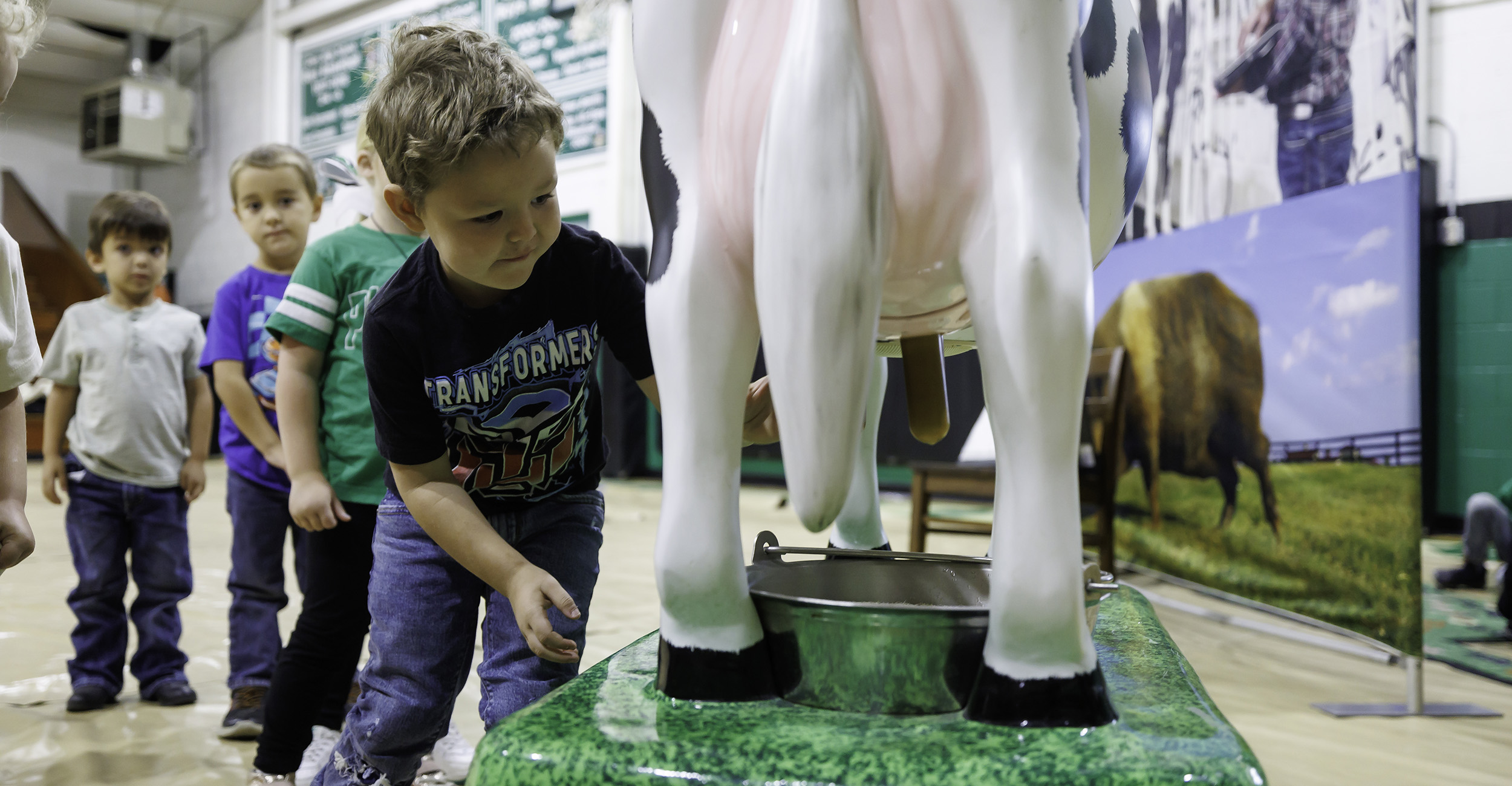
Farm to You exhibit helps students learn the origin of food
Tuesday, March 25, 2025
Media Contact: Trisha Gedon | Sr. Communciations Specialist | 405-744-3625 | trisha.gedon@okstate.edu
It’s not every day Oklahoma school children get to milk a cow, but thanks to an agricultural learning opportunity through Oklahoma State University Extension, students across the state are learning about where their food comes from and how food helps their bodies grow.
Farm to You is a walk-through educational experience with nine stations designed for students in first through sixth grades and is part of OSU Extension’s Community Nutrition Education Programs. The hands-on activities help children learn where their food comes from and guides them to develop the skills they need to make healthy lifestyle choices, said Parker Jackson, Community and Nutrition Education Programs educator and program coordinator with OSU Extension.
“With this exhibit, our goal is to help students not only learn where their food comes from but also help them make the connection of how good nutrition affects the body,” he said.
The first station is called Oklahoma Farm Land. The students sit on a rug with an outline of Oklahoma and discuss the different crops grown around the state, as well as those that can’t grow here. Watermelon is the students’ favorite crop to discuss.
Jackson also asks the students to guess how many farms there are in Oklahoma. With answers ranging from 50 to 1 million, he informs them that Oklahoma has about 78,000 working farms that range in size.
The next station, called A Farmer’s Life, is the students’ favorite because they get to milk Belle, the artificial cow. They also learn more about daily life on a farm. The Farmers Market is the third station and uses the USDA’s MyPlate to help students build their plates using food models. This allows them to visualize portion sizes and healthy food choices.

The remaining six stations take the students through the body, including the mouth, stomach, intestines, muscles, bones and brain, and show them how foods affects all parts of the body. While in the mouth station, students sit on tooth-shaped chairs and get to brush them with a giant toothbrush.
“Each of the stations not only have great information, but also a physical activity to help instill the importance of being active,” Jackson said.
Kristen Rupert, a reading teacher at Will Rogers School in Vinita, Oklahoma, said she is glad her students had the opportunity to experience Farm to You earlier this semester. She believes the experience is so positive, this was the second year she had requested Farm to You come to the Vinita school system.
“I think it’s important for students to learn about nutrition and taking care of themselves,” she said. “Vinita is a rural town, but, surprisingly, a lot of children don’t know where their food comes from. They believe everything comes from the grocery store.”
Rupert said she likes that each station takes only a few minutes to go through.
“The kids get great information, and movement is incorporated into each station, but kids’ attention spans can be short,” she said. “Each station keeps them engaged and learning before they move on.”
Rupert invites the high school ag students to help with the Farm to You presentation, and her students enjoy the interaction with the high schoolers.
“The younger kids enjoy being with the older ag students, and it’s a great opportunity for the older students to be good role models,” she said. “I recommend other educators to bring Farm to You to their schools. It’s a busy day, but worth it.”
The Farm to You exhibit is free for schools. There are space and personnel requirements, and details are available on the website. Teachers may request a Farm to You visit via email from the website. Jackson said there are dates still available for the spring semester, and he currently is getting requests for visits next fall semester.
